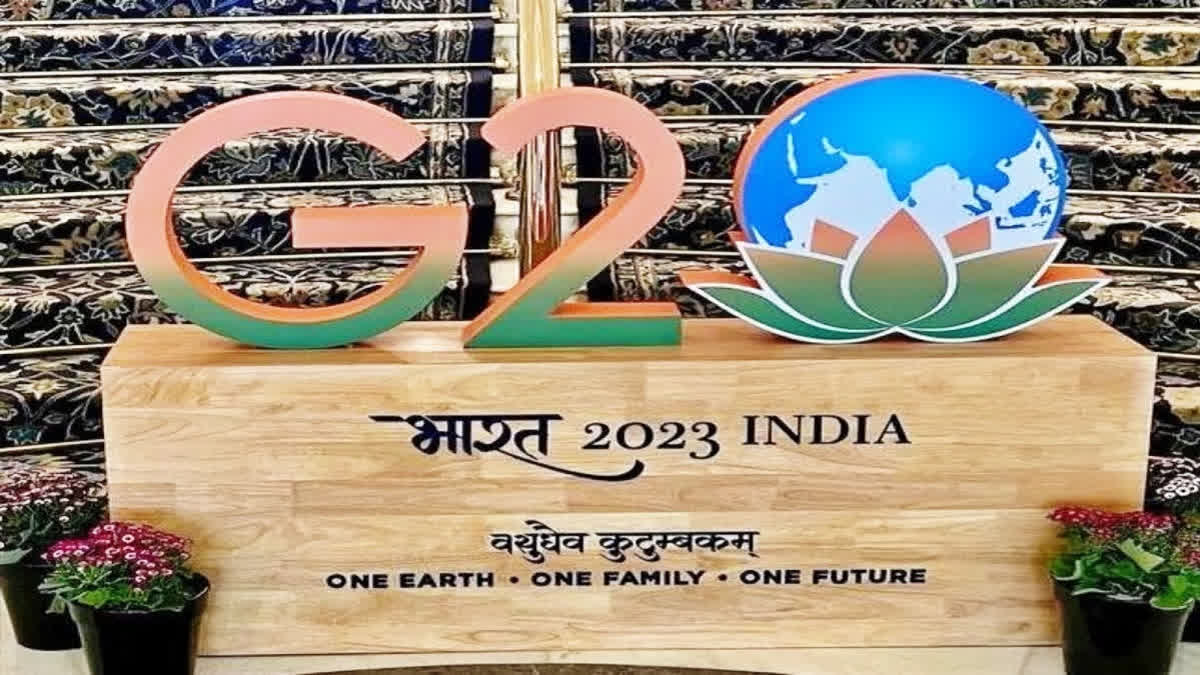New Delhi: G20 leaders on Saturday called for a strong, sustainable, and inclusive growth as an answer to the uneven recovery the world has seen from the pandemic-infused plunder, and flagged trillions of dollar that countries would need to meet their climate goals and clean energy technologies.
The New Delhi Declaration adopted at the Summit of leaders of the world's top 20 economies held under India's presidency also called for reforming of international financial institutions, managing debt vulnerabilities of low and middle-income countries and the start of exchange of tax-relevant information on crypto assets by 2027.
The declaration called for accelerating efforts to phase down unabated coal power, phase-out of inefficient fossil fuel subsidies and low-cost financing for energy transition of developing countries. While developing countries need USD 5.8-5.9 trillion in the pre-2030 period for their climate goals, the world would need another USD 4 trillion per annum investment by 2030 to help reach net-zero carbon emission goal by 2050.
Stating that cascading crises have posed challenges to long-term growth, the declaration called for well calibrated macroeconomic and structural policies to counter the challenge of an uneven recovery, and boost long-term growth. "We will protect the vulnerable, through promoting equitable growth and enhancing macroeconomic and financial stability."
"With notable tightening in global financial conditions, which could worsen debt vulnerabilities, persistent inflation and geoeconomic tensions, the balance of risks remains tilted to the downside. We, therefore, reiterate the need for well-calibrated monetary, fiscal, financial, and structural policies to promote growth, reduce inequalities and maintain macroeconomic and financial stability," it said.
With several parts of the world including India reeling under high inflation, the document noted that central banks remain strongly committed to achieving price stability and ensuring that inflation expectations remain well anchored. "We will prioritise temporary and targeted fiscal measures to protect the poor and the most vulnerable, while maintaining medium-term fiscal sustainability."
Recognising the critical role of private enterprises in accelerating growth and driving sustainable economic transformations, they resolved to facilitate investments including Foreign Direct Investments (FDIs) and promote the ease and reduce the cost of doing business. "We reaffirm that a rules-based, non-discriminatory, fair, open, inclusive, equitable, sustainable and transparent multilateral trading system, with WTO at its core, is indispensable," the declaration said.
With the war in Ukraine triggering a spike in energy prices particularly of natural gas in 2022, the leaders emphasized the importance of "maintaining uninterrupted flows of energy from various sources, suppliers and routes, exploring paths of enhanced energy security and market stability, including through inclusive investments to meet the growing energy demand."
The spike in gas prices had led many countries, including that in Europe to switch to coal, the polluting fossil fuel they had committed to phasing down. This was seen by some as a threat to the climate goals and the target of bringing down carbon emission to zero. But G20 leaders recognised the need of the present energy systems to support growth. "Recognizing that developing countries need to be supported in their transitions to low carbon/emissions, we will work towards facilitating low-cost financing for them," the declaration said.
"Will work towards facilitating access to low-cost financing for developing countries, for existing as well as new and emerging clean and sustainable energy technologies and for supporting the energy transitions." They took note of the report on 'Low-cost Financing for the Energy Transitions' prepared under the Indian Presidency and its estimation that the world needs an annual investment of over USD 4 trillion, with a high share of renewable energy in the primary energy mix.
